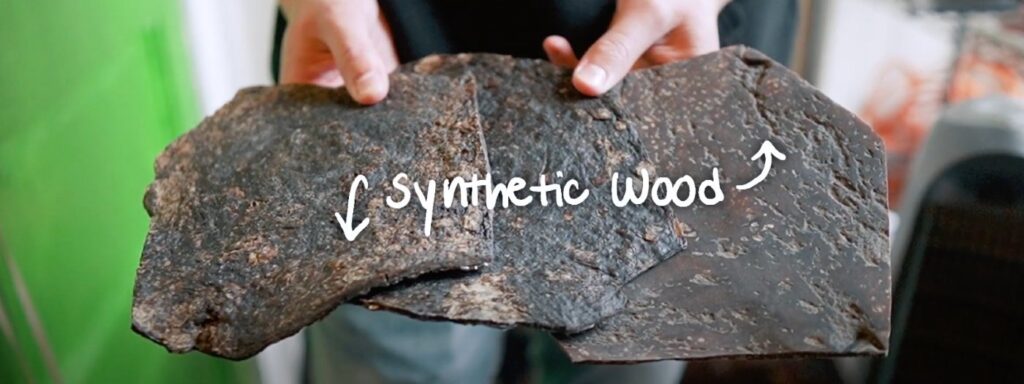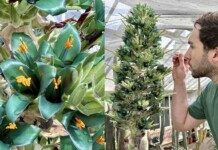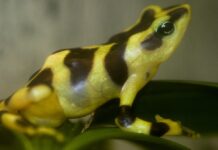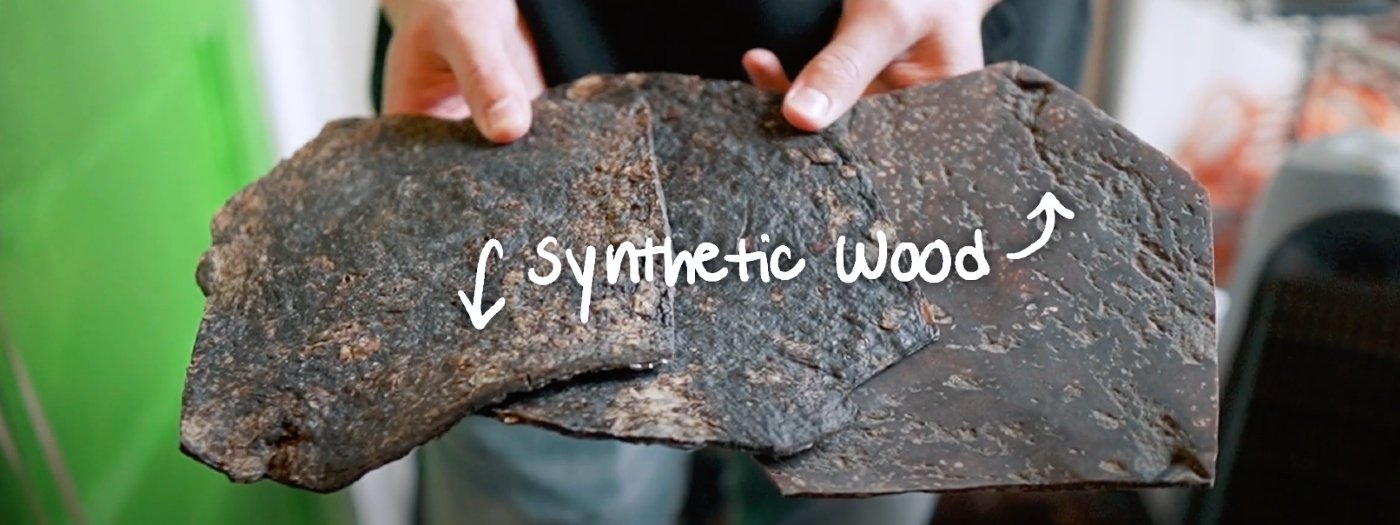
This year’s American James Dyson Award winner, Gabe Tavas, takes on deforestation with his invention, Pyrus. His mission is simple: Make wood without cutting down trees.
By embracing a balance between nature and design, Gabe found a way to use bacterial cellulose—the main component of wood—to form an alternative material which imitates exotic woods found in the Amazon Rainforest.
Gabe claims his ambition for creating global change came from what he calls the “immigrant influence.”
His mother, now an immigration attorney, moved to the United States from Cuba as a small child and his father from the Philippines at age 17.
“I began considering entrepreneurship as a teenager and felt an urgency around solving global issues in sustainability,” Gabe says. Born and raised in Chicago, Gabe yearned for more time spent in nature and found his escape at the Saint Paul Woods in Morton Grove, IL.
“Growing up in the city, you don’t have many expressions of nature which can be stressful. Forests provide an escape. It’s my favorite place to meditate, and the thought of losing that because we were too short-sided pains me from a visceral level.”
Every piece of wood has two essential ingredients: Cellulose, which provides its basic shape and framework, and Lignin, which acts as a glue for all the other components. Some kombucha companies use microorganisms that produce coherent sheets of cellulose on top of the liquid.
To make Pyrus, these sheets of cellulose are blended to an even consistency and then embedded into a gel. As the gel dries, it hardens and is placed under a mechanical press to form a flat sheet of wood-like material. This material can then be sanded, cut, and coated with resins just like its tree-based counterparts.
While there are several companies creating wood alternative materials, many are using sawdust. Utilizing sawdust still involves the cutting down of trees and damaging the natural ecosystem, but it also poses serious health risks to those overexposed to it.
Sawdust is an irritant that can affect your eyes, nose, and throat, and in long-term exposures can even cause cancer.
With Pyrus, not a single tree is cut down and no dangerous oils are being used. Pyrus uses kombucha waste, which is both environmentally friendly and sustainably created, to create a cellulose making wood in a sustainable fashion. The end goal of Pyrus is to replace expensive and fancy wood products which are currently huge drivers of deforestation.
Over the past year, Gabe has produced 74 Pyrus wood samples in a variety of colors and textures. Pyrus has been tested on several pieces of equipment commonly found in woodworking shops and makerspaces, all with the guidance and consistently positive feedback of professional woodworkers. Maintaining the versatility of wood, Pyrus can be made into jewelery, guitar picks, and coasters.
Winning the national leg of the James Dyson Award will inject $2,600 into Gabe’s project. He plans to use the prize money to expand his production facilities and develop 3D printing processes. Ultimately, Gabe wants Pyrus to be made into various environmentally friendly products that meet consumer needs and are commercially viable.
RELATED: Students Design Beach Vacuum That Can Suck Up Microplastics While Leaving All the Sand
Three-time James Dyson Award judge and Technology Influencer Sam Sheffer had this to say about the award and this year’s winner:
“I’ve judged the JDA for several years and am always captivated by the inventions these young engineers put forward. The 2021 entries were some of the most competitive I’ve seen. Pyrus stood out because it’s solving a problem we can all relate to with waste from a product that the majority of us consume every day. I’m excited to see all the innovative ways Pyrus will evolve under Gabe’s imaginative and talented leadership.”
Pyrus will progress to the international stage of the James Dyson Award. The International shortlist will be announced on October 13 and the International winners on November 17.
(WATCH the video about this innovation below.)
BREW UP a Little Good News By Sharing This Story…




















